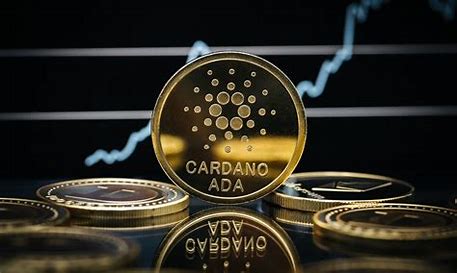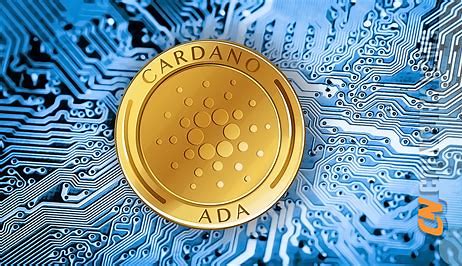Recommended for You
Cardano: The Future of Blockchain Innovation and Smart Contracts
2025/04/02 11: 29
Cardano (ADA) is a third-generation blockchain platform designed to address the limitations of scalability, interoperability, and sustainability found in earlier blockchains like Bitcoin and Ethereum.
Introduction
Cardano (ADA) is a third-generation blockchain platform designed to address the limitations of scalability, interoperability, and sustainability found in earlier blockchains like Bitcoin
and Ethereum. Founded by Charles Hoskinson, one of Ethereum’s co-founders, Cardano was developed with a research-driven approach, ensuring high security, energy efficiency,
and decentralized governance. With its innovative proof-of-stake (PoS) consensus mechanism, Ouroboros, and its commitment to peer-reviewed scientific research, Cardano stands
as one of the most promising blockchain networks.
In this article, we explore the unique features of Cardano, its advantages over other blockchains, and its potential impact on the future of decentralized applications (dApps) and
finance.
What Makes Cardano Unique?
Unlike many blockchain projects that prioritize rapid deployment, Cardano follows a structured, multi-phase roadmap that emphasizes research, security, and long-term stability. So
me of its key differentiators include:
Layered Architecture – Cardano is built with a two-layer system:
Cardano Settlement Layer (CSL) – Handles transactions using ADA, ensuring speed and security.
Cardano Computation Layer (CCL) – Manages smart contracts and dApps, providing flexibility and scalability.
Proof-of-Stake Consensus (Ouroboros) – Unlike Bitcoin’s energy-intensive Proof-of-Work (PoW), Cardano uses a more sustainable PoS system called Ouroboros, allowin
g users to stake ADA and participate in network security while earning rewards.
Peer-Reviewed Research and Formal Verification – Every component of Cardano is developed through rigorous academic research and formal mathematical verification,
reducing vulnerabilities and improving reliability.
Interoperability and Governance – Cardano aims to facilitate blockchain interoperability and includes an on-chain governance model to enable decentralized decision-
making.
Smart Contracts with Plutus – Cardano’s smart contract platform, Plutus, offers enhanced security and flexibility, making it a strong competitor to Ethereum’s Solidity-bas
ed contracts.
Cardano’s Advantages Over Ethereum and Other Blockchains
While Ethereum has long been the dominant player in the smart contract space, Cardano offers several advantages that could give it an edge in the long run:
Lower Transaction Fees – Cardano’s PoS mechanism significantly reduces gas fees compared to Ethereum’s PoW-based system.
Higher Scalability – The Hydra scaling solution aims to process thousands of transactions per second (TPS), making Cardano more efficient than Ethereum’s current capa
city.
Sustainability – With its energy-efficient PoS model, Cardano consumes a fraction of the energy required by Bitcoin and Ethereum, making it an environmentally friendly
alternative.
Stronger Security – Cardano’s focus on peer-reviewed research ensures a robust and secure blockchain infrastructure, reducing the risk of hacks and vulnerabilities.
Real-World Applications of Cardano
Cardano is not just a theoretical project; it has real-world use cases across multiple industries, including:
Decentralized Finance (DeFi) – Cardano enables secure and low-cost financial transactions, reducing reliance on traditional banking systems.
Supply Chain Management – Companies can use Cardano’s transparent and immutable ledger to track goods and verify authenticity.
Identity Verification – Cardano's Atala PRISM is a blockchain-based identity solution that helps individuals securely manage their digital identities.
Government and Healthcare – Governments and healthcare organizations can use Cardano to store and verify records efficiently, reducing fraud and administrative cos
ts.

Challenges and Future Developments
Despite its potential, Cardano faces some challenges:
Delayed Smart Contract Adoption – Cardano's gradual development approach has led to slower adoption compared to competitors like Ethereum and Binance Smart
Chain.
Competition in the Blockchain Space – Other platforms like Solana, Polkadot, and Avalanche are also offering high-speed, low-cost blockchain solutions.
Regulatory Uncertainty – As with all cryptocurrencies, regulatory changes could impact Cardano’s growth and adoption.
However, Cardano’s roadmap includes continuous improvements, such as:
Hydra Layer 2 Scaling Solution – Aiming for over 1 million TPS to support mass adoption.
Voltaire Governance System – Allowing ADA holders to vote on proposals, ensuring decentralized decision-making.
Continued Partnerships – Collaborations with governments, universities, and enterprises to drive adoption and real-world utility.
Conclusion
coin78:Cardano has positioned itself as a next-generation blockchain with strong foundations in security, sustainability, and scalability. With its research-driven approach, innova
tive consensus mechanism, and commitment to solving real-world problems, Cardano has the potential to reshape the future of decentralized applications and finance.
As adoption grows and new upgrades roll out, Cardano could become a key player in the blockchain ecosystem, offering an efficient and environmentally friendly alternative to
traditional financial systems. Investors, developers, and enterprises should keep a close eye on Cardano’s progress as it continues to evolve and expand its impact.
Disclaimer:
1. The information content does not constitute investment advice, investors should make independent decisions and bear their own risks
2. The copyright of this article belongs to the original author, and only represents the author's personal views, not the views or positions of Coin78. This article comes from news media and does not represent the views and positions of this website.
1. The information content does not constitute investment advice, investors should make independent decisions and bear their own risks
2. The copyright of this article belongs to the original author, and only represents the author's personal views, not the views or positions of Coin78. This article comes from news media and does not represent the views and positions of this website.
 USD
USD CNY
CNY HKD
HKD TWD
TWD VND
VND USDT
USDT
